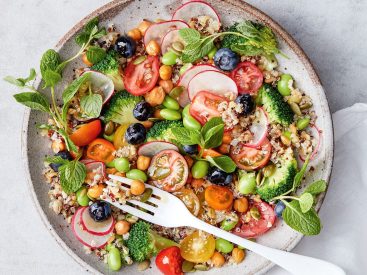Cropwell Bishop s tilton-stuffed prunes These fruity, cheesy, bacony snacks are hard to beat – think turbo-charged pigs in blankets. Prep 10 min Cook 12 min Makes 5 10 dried prunes 50g stilton (we use Cropwell Bishop ), cut into 5 x 10g pieces 3 rashers smoked streaky bacon […]
Delicious!
Delicious!



